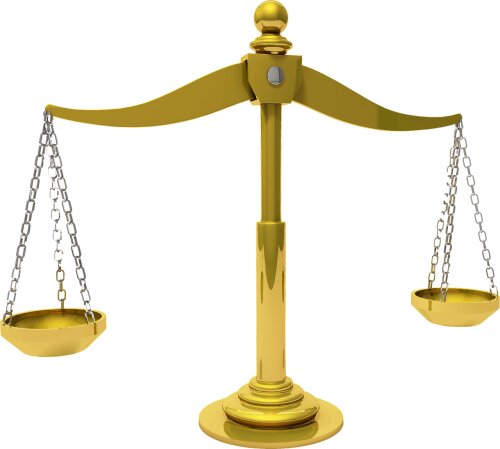Best Faith-Based Law Lawyers in Mthatha
Share your needs with us, get contacted by law firms.
Free. Takes 2 min.
List of the best lawyers in Mthatha, South Africa
About Faith-Based Law in Mthatha, South Africa
Faith-Based Law in Mthatha, South Africa, encompasses the legal practices and considerations that intersect with religious beliefs and practices. It involves the legal mediation and adjudication of issues that arise from religious communities and faith-driven institutions. Given Mthatha's diverse cultural landscape, Faith-Based Law particularly addresses matters related to family law, mediation, and sometimes criminal law, influenced by religious doctrines and values. The town of Mthatha, with its rich heritage, often sees interactions between civil law and customary or religious legal systems, necessitating a thorough understanding of both by practitioners.
Why You May Need a Lawyer
Individuals may require legal assistance in Faith-Based Law for several reasons, including disputes over matrimonial proceedings, inheritance and estate planning within religious contexts, religious discrimination, or when faith-based entities face legal challenges. Another common area involves navigating family disputes where cultural and religious practices are in question. Others might seek legal guidance to ensure that their religious practices are protected under the South African Constitution, which guarantees freedom of religion.
Local Laws Overview
The legal framework in Mthatha, similar to the rest of South Africa, is based on a combination of constitutional provisions, statutory laws, and common law. Key legal aspects relevant to Faith-Based Law include the Recognition of Customary Marriages Act, which gives legal recognition to marriages conducted under traditional rites, and the Protection of Religious Rights, which safeguards the practices and gatherings of faith communities. Additionally, local laws ensure that customary and religious practices do not infringe upon the rights guaranteed by the national legal system.
Frequently Asked Questions
What is Faith-Based Law?
Faith-Based Law refers to legal principles and practices that are aligned with religious values or that address issues arising within religious communities.
How does Faith-Based Law interact with secular law?
Faith-Based Law often complements secular law but must adhere to constitutional mandates. South African law allows for both religious and secular legal systems to coexist, provided they comply with human rights standards.
Can customary marriages be legally recognized?
Yes, under the Recognition of Customary Marriages Act, customary marriages are legally recognized, provided they meet certain criteria as outlined in the Act.
Are religious tribunals legally binding?
While religious tribunals may resolve disputes based on religious law, their decisions are not binding in a secular court unless both parties agree to this.
How can a lawyer help in faith-based legal matters?
A lawyer can provide guidance on navigating conflicts between religious and civil laws, ensuring legal recognition of religious practices, and representing religious entities in legal disputes.
What are common legal issues faced by faith-based organizations?
Common issues include property disputes, compliance with charitable status laws, employment issues, and ensuring freedom of religious expression.
Is freedom of religion protected by law in South Africa?
Yes, the South African Constitution guarantees freedom of religion, belief, and opinion.
Can discrimination based on religion be legally challenged?
Yes, discrimination based on religion can be challenged under South African law, as it upholds equal rights and prohibits unfair discrimination.
What role do traditional leaders play in Faith-Based Law?
Traditional leaders often play a role in mediating disputes in rural areas, especially those related to customary law, family matters, and community issues.
How can faith-based schools ensure compliance with national laws?
Faith-based schools must adhere to national educational standards and regulations while maintaining a curriculum that respects their religious ethos. Legal advice can ensure compliance without compromising religious values.
Additional Resources
For further assistance, individuals may contact organizations such as the South African Legal Resources Centre, the Commission for the Promotion and Protection of the Rights of Cultural, Religious and Linguistic Communities, and legal aid providers focusing on faith-based and community laws. These organizations offer valuable resources and support concerning Faith-Based Law.
Next Steps
If you require legal assistance in matters related to Faith-Based Law, consider consulting a lawyer with expertise in both civil and religious legal systems. Begin by gathering all relevant documents and information concerning your case, and seek recommendations for legal professionals in Mthatha who specialize in Faith-Based Law. Scheduling an initial consultation will help determine the scope of legal advice needed and the best approach to resolving your issue.
Lawzana helps you find the best lawyers and law firms in Mthatha through a curated and pre-screened list of qualified legal professionals. Our platform offers rankings and detailed profiles of attorneys and law firms, allowing you to compare based on practice areas, including Faith-Based Law, experience, and client feedback.
Each profile includes a description of the firm's areas of practice, client reviews, team members and partners, year of establishment, spoken languages, office locations, contact information, social media presence, and any published articles or resources. Most firms on our platform speak English and are experienced in both local and international legal matters.
Get a quote from top-rated law firms in Mthatha, South Africa — quickly, securely, and without unnecessary hassle.
Disclaimer:
The information provided on this page is for general informational purposes only and does not constitute legal advice. While we strive to ensure the accuracy and relevance of the content, legal information may change over time, and interpretations of the law can vary. You should always consult with a qualified legal professional for advice specific to your situation.
We disclaim all liability for actions taken or not taken based on the content of this page. If you believe any information is incorrect or outdated, please contact us, and we will review and update it where appropriate.








